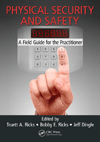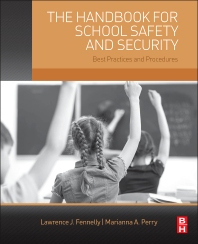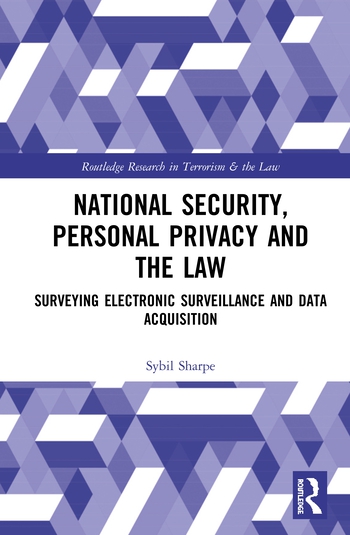Wage War: The Fight Over Security Officers' On-Call Compensation

A lawsuit, now under review by the California Supreme Court, could reset employment rules and compensation tests to determine “on-call” pay of security officers and could influence work scheduling and compensation elsewhere in the U.S. Depending on the Supreme Court’s review, there may be impact on “officer work agreements, what employers pay and what they don’t pay, concerning wage and hour laws,” says Howard Knee of Blank Rome, which represents CPS Security Solutions, the lawsuit’s defendant. Photo courtesy of Howard Knee
What do famous TV surgeon Marcus Welby and Tim Mendiola, a real-life security officer, have in common? Beyond their different and equally essential tasks, both are on-call when not with a patient or patrolling a site.
No doubt, this type of work scheduling occurs in a variety of diverse occupations, including ship engineers, utility workers, electrical technicians, tug boat pilots, midwives, information technologists, media personnel and junior airline pilots. And with some security officers, too.
However, when it comes to compensation, issues centering on security officer pay can get combative as in court-of-law argumentative. Take, for example, Mendiola v. CPS Security Solutions, a class-action status lawsuit that has been slowly wending its way through sometimes jousting California and federal Department of Labor agency rulings and opinions as well as prior decisions by a California Trial Court and then a California Court of Appeals.
CPS contracts with its clients, in this case construction companies at building sites throughout California, to provide security services. The package of services generally includes the presence of a security officer who resides in an on-site trailer from 3 p.m. to 7 a.m., Monday through Friday, and for 24 hours on Saturday and Sunday.
Basically, the Appeals Court held that security officers who remain on the work site 16 hours per day during the week (eight hours “on duty” and eight hours “on call”) and 24 hours per day on the weekends (16 hours “on duty” and eight hours “on call”) must be compensated for their “on-call” time. But the employer could deduct up to eight hours of regularly scheduled “sleep time” when the trailer officers worked 24 hour shifts because the employer and trailer officer employees had entered into an agreement to exclude eight hours of sleep time from the officers’ compensable time.
Objecting to compensation for all of the on-call time minus weekend sleep time, CPS asked the California Supreme Court to review the Appeals Court decision, says Howard Knee of the law firm Blank Rome, LLC, Los Angeles, which represents CPS Security Solutions of Gardena, California. Knee expected to provide arguments before the Supreme Court in a presentation scheduled for early November. The Court will decide later.
If the Appeals Court decision is sustained, at least in California there may be new rules and tests to determine in certain circumstances if employers such as CPS must pay their security officer employees for “on-call” sleep time. And historically, such California actions can influence other parts of the country, suggests Knee, who adds that, depending on the Supreme Court result, there may be impact on “officer work agreements, what employers pay and what they don’t pay, concerning wage and hour laws.”
And the new rules and tests may not be limited to contract guarding firms but also apply to temporary or ongoing proprietary officer situations where enterprises have similar agreements or arrangements.
Not surprisingly, Knee sees value in always getting legal advice when it comes to work agreements and compensation plans that meet state and federal wage and hour laws. For more than 25 years, Knee’s client, CPS, has been providing security officer solutions in myriad applications including construction. It also offers security technology solutions and monitoring.
Specific to guarding, in Mendiola v. CPS Security Solutions, as with most legal actions, the devil is in the details embedded within facts (some of which follow here) and which were stipulated in the court action.
Prior to being hired by CPS, each trailer officer was required to sign a “Designation of Personal Time for In-Residence Guard,” also referred to as an “On-Call Agreement.” The On-Call Agreements designated eight hours per day, generally from 9 p.m. to 5 a.m., as “On-Call” hours. Under these agreements, each trailer officer agreed that the trailer home was his or her “residence,” and agreed to “reside during [his or her] employment in the trailer home provided by the company for [his or her] exclusive use.”
Those prospective hires who did not agree to the terms and conditions of employment as a trailer guard were offered positions as hourly security officers, when available.
The trailers had many of the amenities of home, including a living area, a bed, a functioning bathroom and kitchen, heat and air conditioning. The trailers were equipped with locks, and only the assigned trailer officer and CPS maintenance staff had the keys. Officers were allowed to keep personal items in their trailers, including clothing, books, magazines, televisions, radios and personal computers, and to engage in personal activities while on call in the trailers, including sleeping, showering, cooking, eating, reading, watching television, listening to the radio and surfing the Internet. However, children, pets, and alcohol were not permitted on the premises, and adult visitors were permitted only if CPS’s client permitted it.
On week days, trailer guards were generally scheduled to actively patrol the job sites from 5 a.m. to 7 a.m. and from 3 p.m. to 9 p.m. On weekends, trailer officers were on active patrol from 5 a.m. to 9 p.m. During these times, they were paid an hourly rate. For eight hours every day, generally 9 p.m. to 5 a.m., the trailer officers were considered to be on-call, which meant present on the job site or in the trailer, except as specified in the agreements.
If a trailer guard wished to leave the job site during on-call hours, he or she was required to notify a dispatcher, provide information as to where the officer would be and for how long and wait for the reliever to arrive. If a officer requested to leave the job site during sleep time, the officer was paid from the moment of the request until a reliever arrived and, if required to remain on site, the officer was paid for the remainder of the sleep time.
After leaving the job site, the officer was required to remain within a 30-minute radius and carry a pager or cellphone unless other arrangements were made. If called during that time, the officer was required to respond immediately. The trailer officers were not allowed to leave a job site before a reliever arrived. If no reliever was available, CPS had the right to order a trailer officer to remain at the job site, even if the officer had an emergency, but paid for the time.
Relative to the lawsuit’s contentions, CPS did not consider on-call time when calculating hours worked, and trailer officers were paid for on-call time only if an alarm, noise, motion or other condition on the job site required investigation or they were waiting for or had been denied a reliever. When investigating a suspicious condition, officers were paid for the actual time spent conducting the investigation. If an officer spent three or more hours engaged in investigations during the on-call period, he or she would be paid for the entire eight hours.
In California and on the federal level, there are tests to determine hours worked. The California Labor Commissioner and the state courts there have a seven-part test:
- Whether there was an on-premises living requirement that prevented the employee from leaving the premises;
- Whether there were excessive geographical restrictions on employees’ movements;
- Whether the frequency of calls was unduly restrictive;
- Whether a fixed time limit for response was unduly restrictive;
- Whether the on-call employee could easily trade on-call responsibilities;
- Whether use of a pager/cellphone could ease restrictions; and
- Whether the employee had actually engaged in personal activities during on call-in time.
On the federal level, the U.S. Department of Labor Wage and Hour Division, under the Fair Labor Standards Act, defines: “An employee who is required to remain on-call on the employer’s premises is working while ‘on-call.’ An employee who is required to remain on-call at home, or who is allowed to leave a message where he/she can be reached, is not working (in most cases) while on-call. Additional constraints on the employee’s freedom could require this time to be compensated.”
Also, the U.S. Department of Labor, when considering sleep time, states: An employee who is required to be on duty for less than 24 hours is working even though he/she is permitted to sleep or engage in other personal activities when not busy, but permits deductions for sleep time when the employee resides on the premises. An employee required to be on duty for 24 hours or more may agree with the employer to exclude from hours worked bona fide regularly scheduled sleeping periods of not more than eight hours, provided adequate sleeping facilities are furnished by the employer and the employee can usually enjoy an uninterrupted night’s sleep. No reduction is permitted unless at least five hours of sleep is taken.
Still, generally speaking, U.S. courts distinguish between employees who are “waiting to be engaged” and those who are “engaged to wait,” finding only the latter time to be compensable on an hourly basis. The degree to which the on-call employee is free to engage in personal activities also is a key consideration.
Looking for a reprint of this article?
From high-res PDFs to custom plaques, order your copy today!









